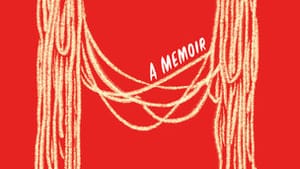Stay in the Loop
BSR publishes on a weekly schedule, with an email newsletter every Wednesday and Thursday morning. There’s no paywall, and subscribing is always free.
The love language of food
'Crying in H Mart’ by Michelle Zauner

During a book talk in late April alongside Youngmi Mayer for Asian Arts Initiative, Michelle Zauner (also known as the indie music artist Japanese Breakfast) explained that food, particularly Korean food, acts as “a ritual to preserve my identity and memory of my mother.” This serves as an important theme throughout her memoir Crying in H Mart. Food is a vehicle for love, identity, and overcoming grief.
An unspoken language
While Zauner admits throughout the book that she and her mother often struggled to understand each other, she stresses the important role that food played in their relationship within the first few pages: “While she never actually taught me how to cook, she did raise me with a distinctly Korean appetite … Food was how my mother expressed her love.”
When her mother was diagnosed with cancer, Zauner, who had been living in Philadelphia at the time, returned to her childhood home in Oregon to take care of her, to “be the perfect daughter and make amends” for the strained relationship they had throughout Zauner’s teenage years. Unsure of how to be of help as her mother’s condition worsened, Zauner turned to their unspoken love language for help by learning about Korean dishes from Kye, her mother’s Korean friend and caretaker.
But the more Korean dishes Kye had prepared and the more sickly her mother was becoming, the more Zauner questioned her own knowledge of Korean culture and her identity as a Korean American.
Of both worlds
As a Korean American born in Seoul who spent the majority of her life in the US, Zauner often struggled to fit in and be accepted in both Korean and American cultures. “I could never be of both worlds, only half in and half out, waiting to be ejected at will by someone with greater claim than me,” she explains in the book.
She spent the majority of her adolescence trying to fit in with her American peers, but after her mother’s death, she felt a “new threat” towards her Korean identity that she had never anticipated before her mother died. “Without my mother, did I have any real claim to Korea or her family?” she questions. “Am I even Korean anymore if there’s no one left to call and ask which brand of seaweed we used to buy?”
Zauner’s identity as a Korean American is a driving force of her book, but her identity as a daughter is just as important throughout; her identity as a Korean American daughter is perhaps most apparent when she shares with readers that the first two words she ever spoke were Umma (the Korean word for Mom) and Mom, stressing that even at a young age she understood the importance of and need for her mother in both of her cultures.
A daughter's memories
During the Asian Arts event, Zauner noted that writing about her relationship and experiences with her mother felt healing for her, but she was also wary of stereotypes throughout her writing process. She prepared herself for negative comments from people who did not agree with or relate to her experiences as a Korean, American, or Korean American. She clarified, however, that her book is ultimately “not just a story about Asian American moms, it’s a story about my mom.”
Crying in H Mart is not a book strictly about loss and grief nor is it written from a perspective difficult to understand. It is written from one daughter’s perspective—a perspective that is truly honest, heartbreaking, and hilarious at times—that will allow you to relate and realize the preciousness and precariousness of mother-daughter relationships. Zauner’s descriptions of Korean food will leave you hungry for jatjuk (a creamy, comforting Korean pine nut porridge) whereas her relatable recollection of memories with her mother will leave you tearful and appreciative of your own relationship with your mother.
Image Description: The cover of the memoir. The title reads in black letters over a solid red background. Two pairs of chopsticks holding up noodles are illustrated on the left and right sides of the book.
What, When, Where
Crying in H Mart: A Memoir. By Michelle Zauner. New York City: Penguin Random House, April 20, 2021. 256 pages, paperback and hardcover; $26.95-$29.00. Get it at penguinrandomhouse.com.
Sign up for our newsletter
All of the week's new articles, all in one place. Sign up for the free weekly BSR newsletters, and don't miss a conversation.

 Emily Savidge
Emily Savidge